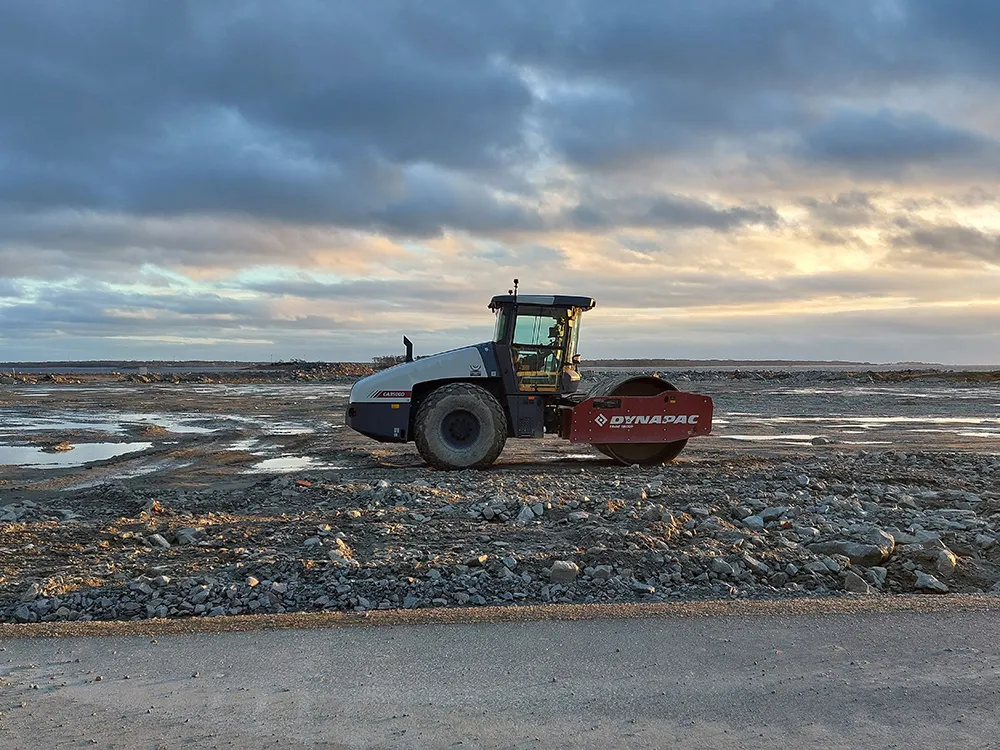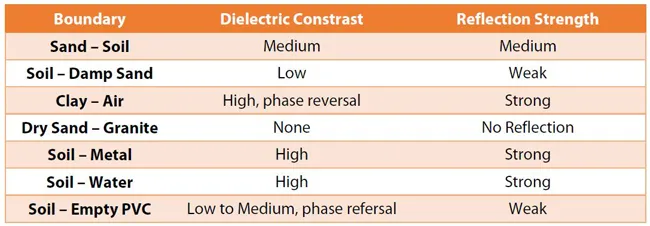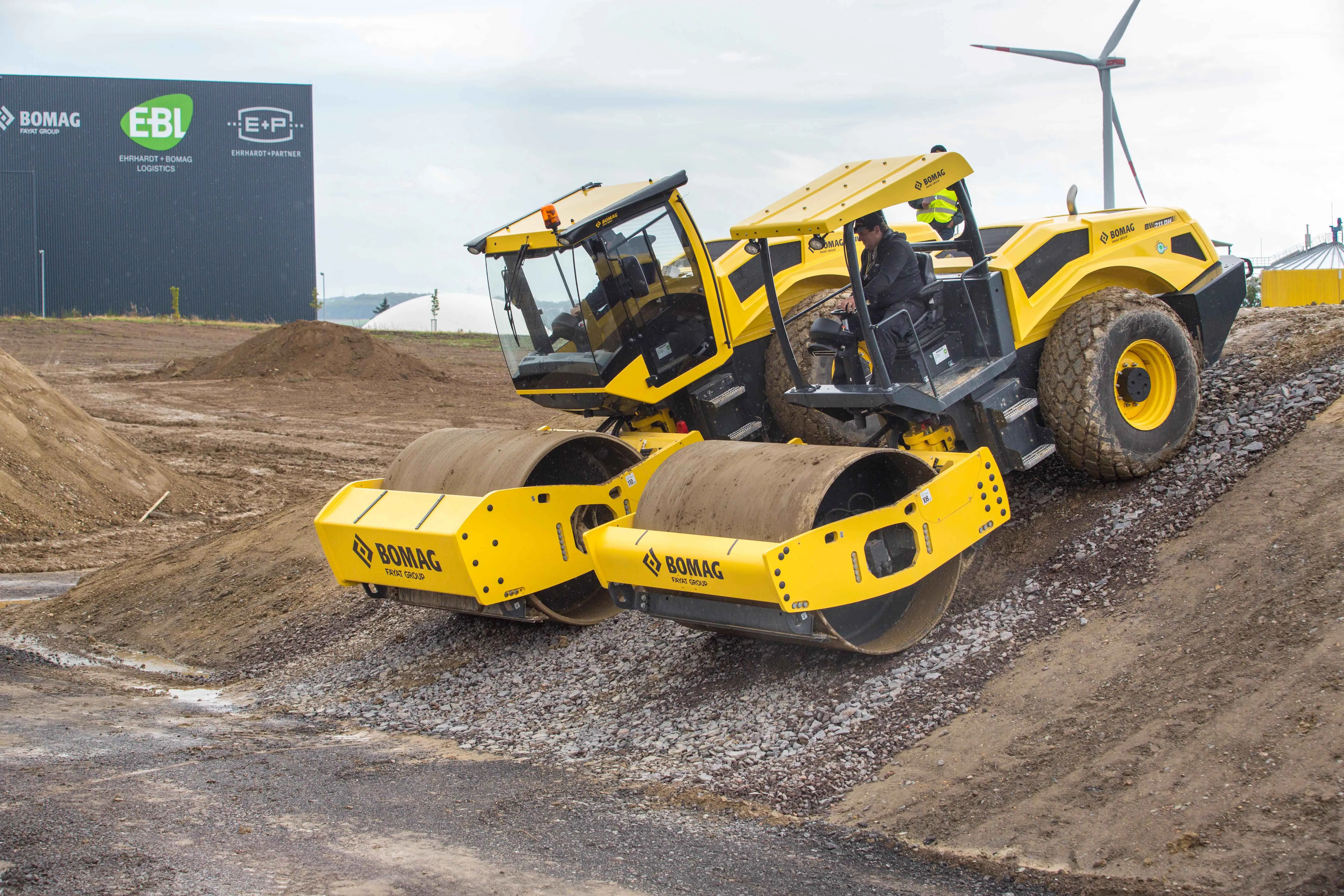
Smart, sensational, SEISMIC
In any compaction job, finding the right balance of factors for the best results has always been a science. Fortunately, with the Dynapac CA3500D SEISMIC Soil Roller, achieving, fast, cost-effective compaction while reducing both fuel and emissions is now easier than ever. It all begins with the unique and intelligent SEISMIC technology that automatically enables the roller to determine the optimum frequency for any material to be compacted. At the heart of the system is an onboard machine control unit, as well as a next-generation compaction meter. This game-changing feature makes it possible for SEISMIC to sense the dynamic characteristics of the material and then calculate the optimum frequency required for the best compaction results. The entire process is achieved using an advanced data flow from the SEISMIC Compaction Meter to the onboard machine control unit, which regulates the machine's hydraulics. By working together with the soil, the SEISMIC feature automatically applies the correct amount of energy exactly where and when it's required and can hydraulically change the vibration frequency, every 0.2 seconds for maximum performance.
Proven fuel efficiency
SEISMIC’s performance has now been verified by independent sources. Recently, the Swedish National Road and Transport Research Institute supervised a series of fuel consumption tests on the Dynapac CA 3500D SEISMIC Soil Roller. It was tested in three different settings over a period of two weeks. The two test weeks were identical regarding procedures and were performed twice to validate that similar test results were reached. The results spoke for themselves. VTI measured a fuel reduction consumption of 28-35% compared to conventional compaction (fixed frequency). Moreover, they registered a good alignment with the onboard telemetrics, which reported savings of 36-38%. Reduced costs from the reduction of passes were not included in the report. This means that under real job site conditions, there is an overall saving of around 55% to complete the job.
Visit us at bauma 2022 to learn more!
Content produced in association with Dynapac









